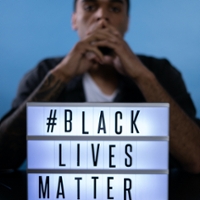Words of Wellness: June 16, 2020
June 15, 2020 - Culture of Caring - Claudia Finkelstein

I had planned to write a COVID-19 re-entry toolkit for this episode of the Culture of Caring newsletter. It will come. However, there is still much to be discussed and learned about racism and anti-racism. The most important issue that can be discussed is the ongoing justice movement - Black Lives Matter.
There is a definite need for ongoing and increased support of the Black members of our community. There is much needed for ongoing and increased education for the whole community.
After addressing the last newsletter to “allies,” it was very kindly pointed out to me that:
“The language seemed to assume that all members of the campus community were White by addressing us all as allies and implying that we all have positions of power.”
I left out an entire group of people in addressing that message. It was a “white centered” message. Although White members of our community have much to learn and contribute, it should not come at the expense of making others invisible – again. This further underscores the need for ongoing collective efforts to improve communications and the cultural relevance of our work.
So, I want to address both Black colleagues and allies.
This blog tells me that I need to listen more than speak to the Black members of our community. I would love to invite you to “guest write” a Culture of Caring newsletter or to submit suggestions, comments, etc. to our MAILBOX or to email me directly when and if you are moved to do so.
For White members of our community, there is more to learn.
First, there is a difference between true allyship and performative allyship. Read more here to deepen your understanding of what it means and how this distinction might shape your thinking and actions.
Another is a framework for looking at the development of “White identity” in relation to race. The identity ranges from “I don’t see color” to “embodied anti-racism” in this Scaffolded Anti-Racist Resources.
Here is a “Curriculum for White Americans to Educate Themselves on Race and Racism–from Ferguson to Charleston.”
And you may consider this 30-day justice plan that many members of our community and their families have undertaken.
While I am bringing some ideas forward, based on your suggestions, and my own journey and commitment to equity and social justice, I do not claim nor want to be viewed as a sole source or the only voice in this work. I am committed to help take this time for us to collectively figure out the path forward to a more equitable society and university.
Please continue to send your ideas and resources that you think will support our collective shared understanding and forward progress.
For now, let’s look out for each other.

